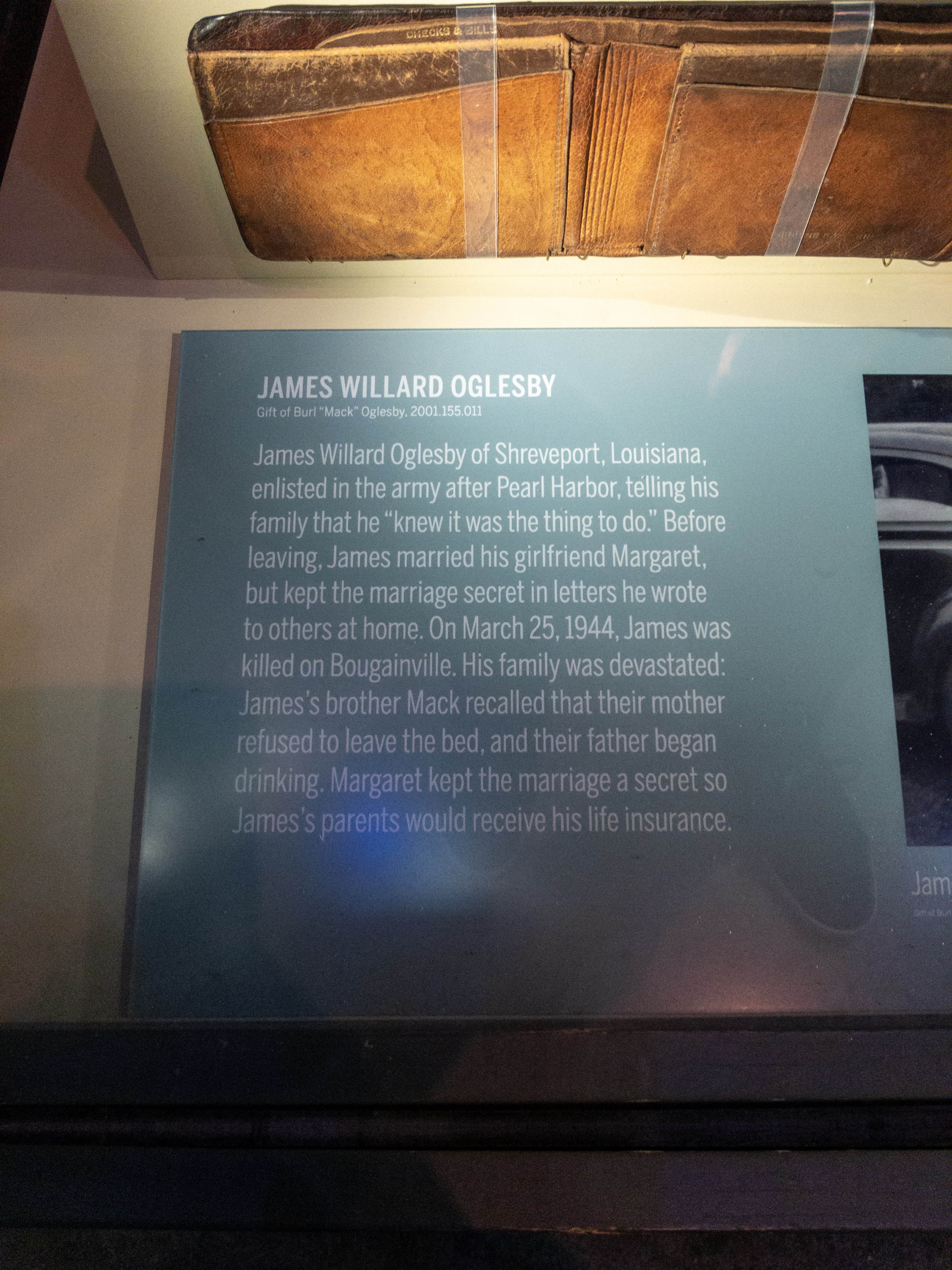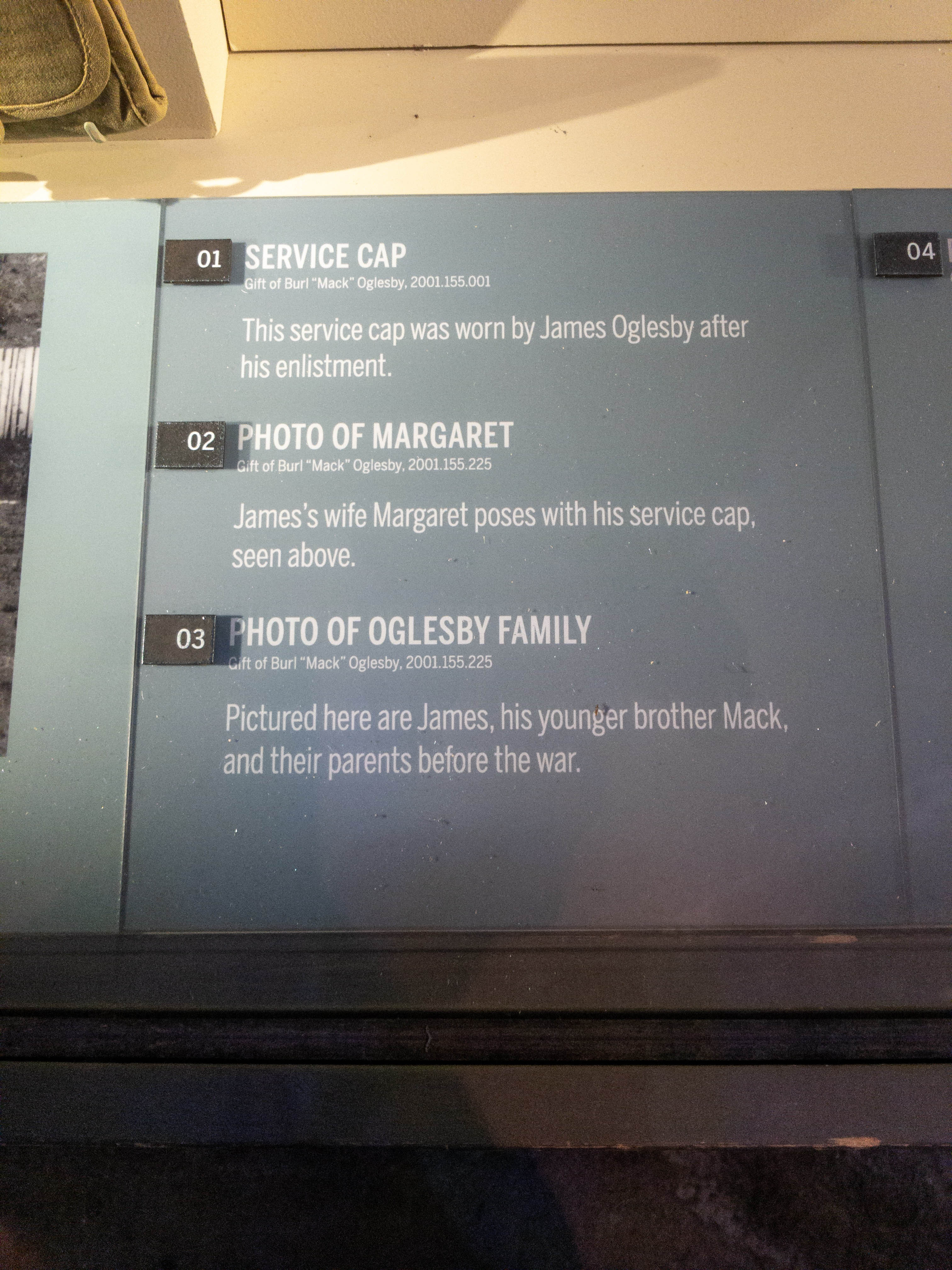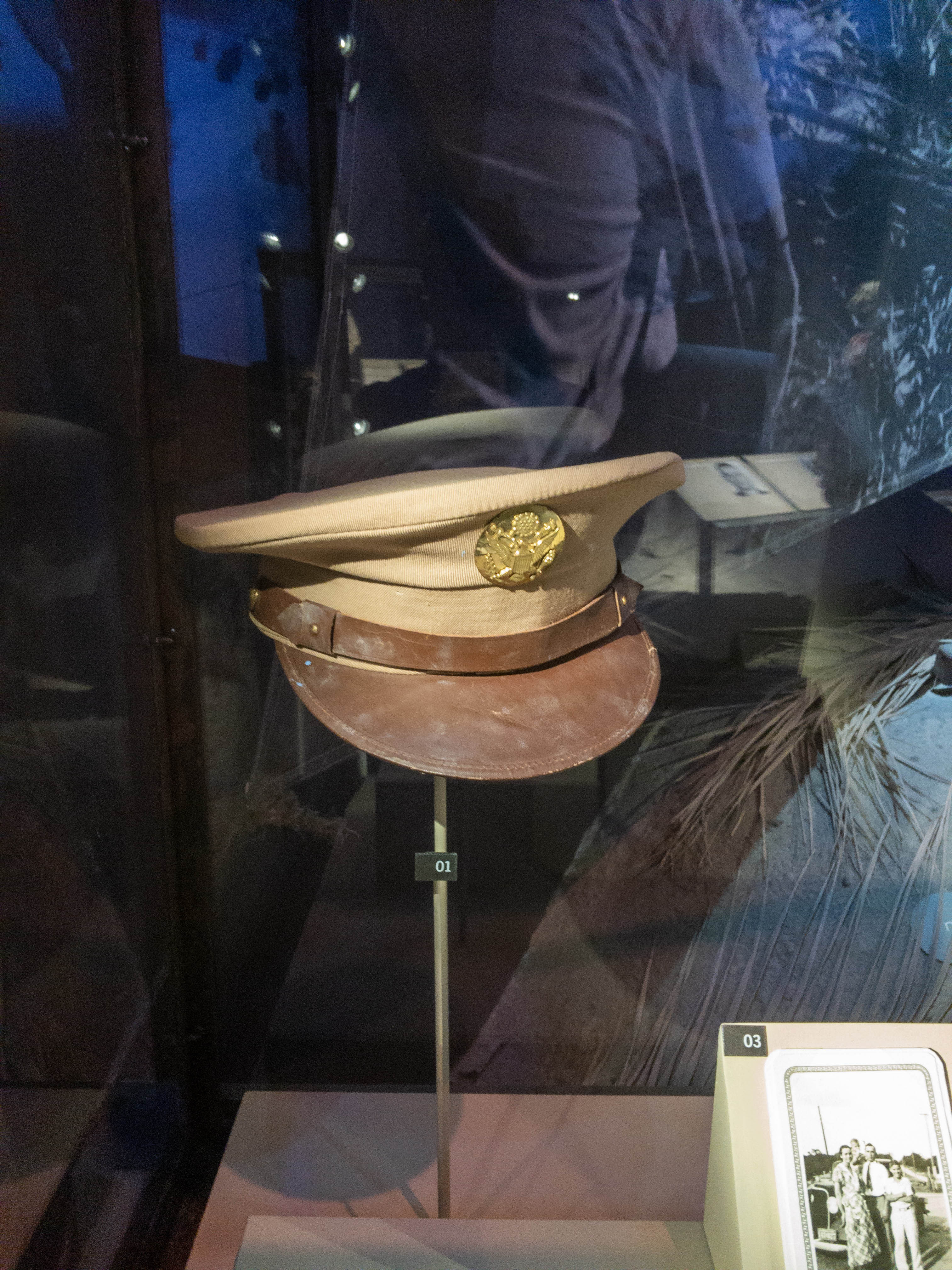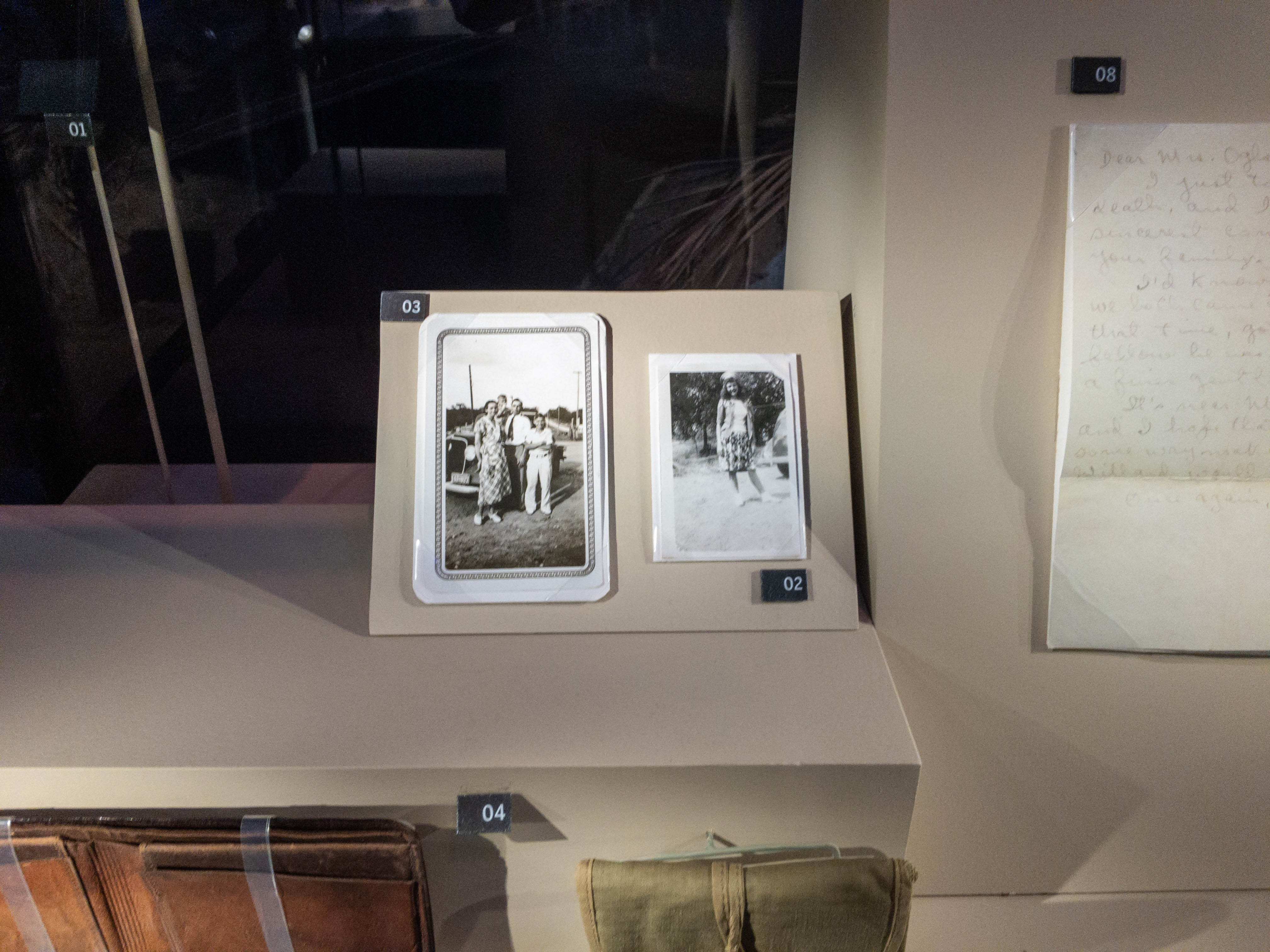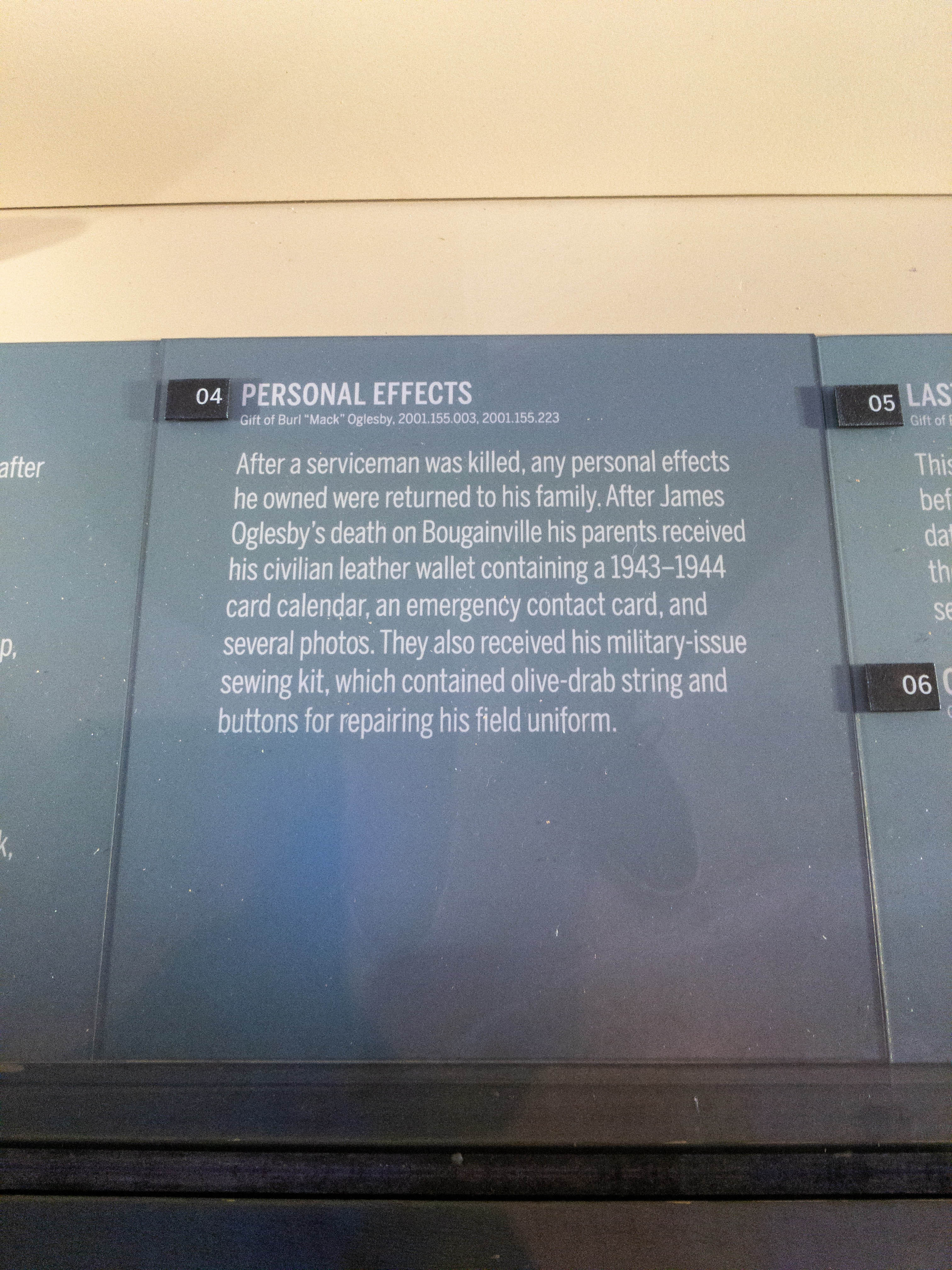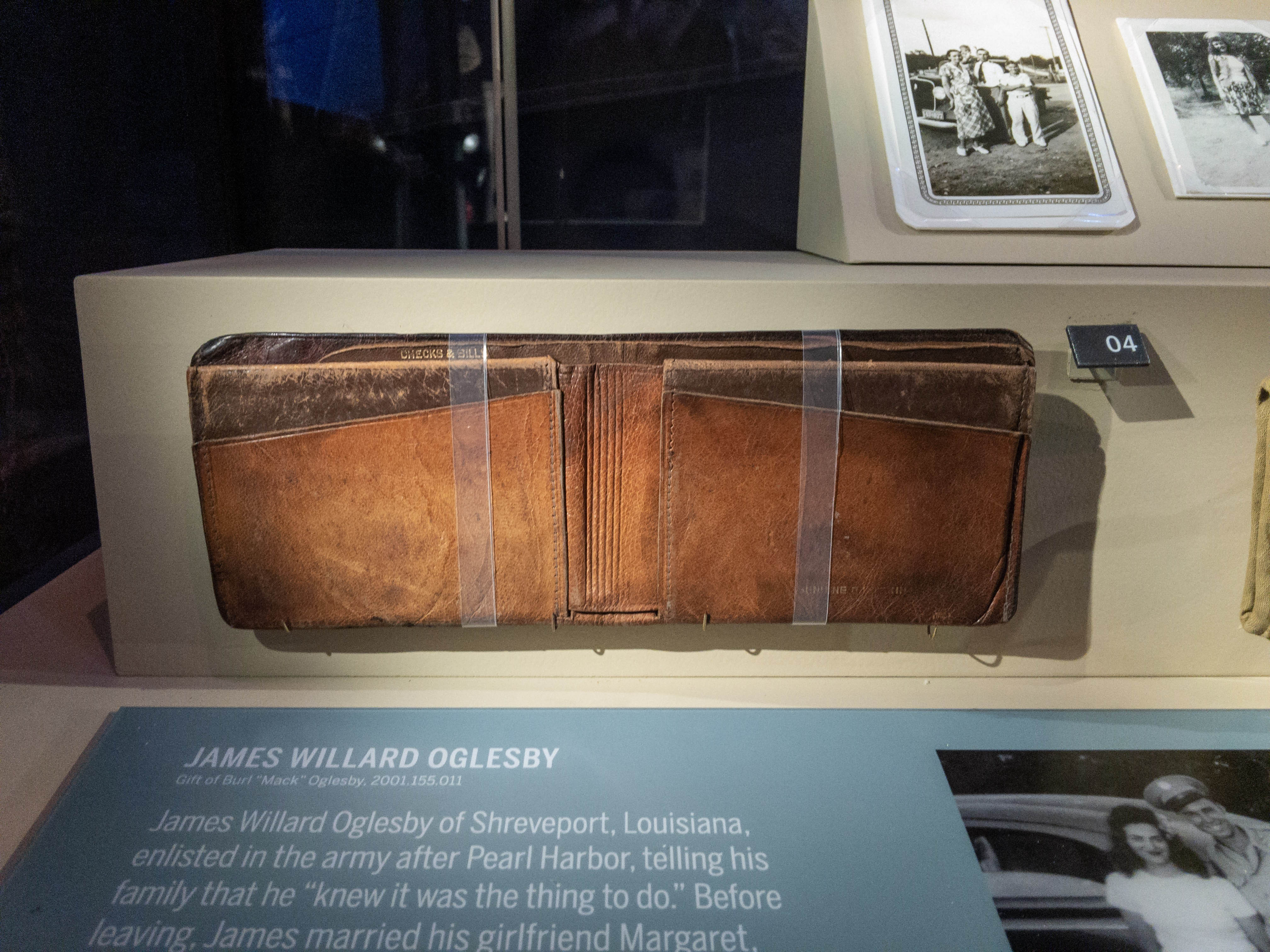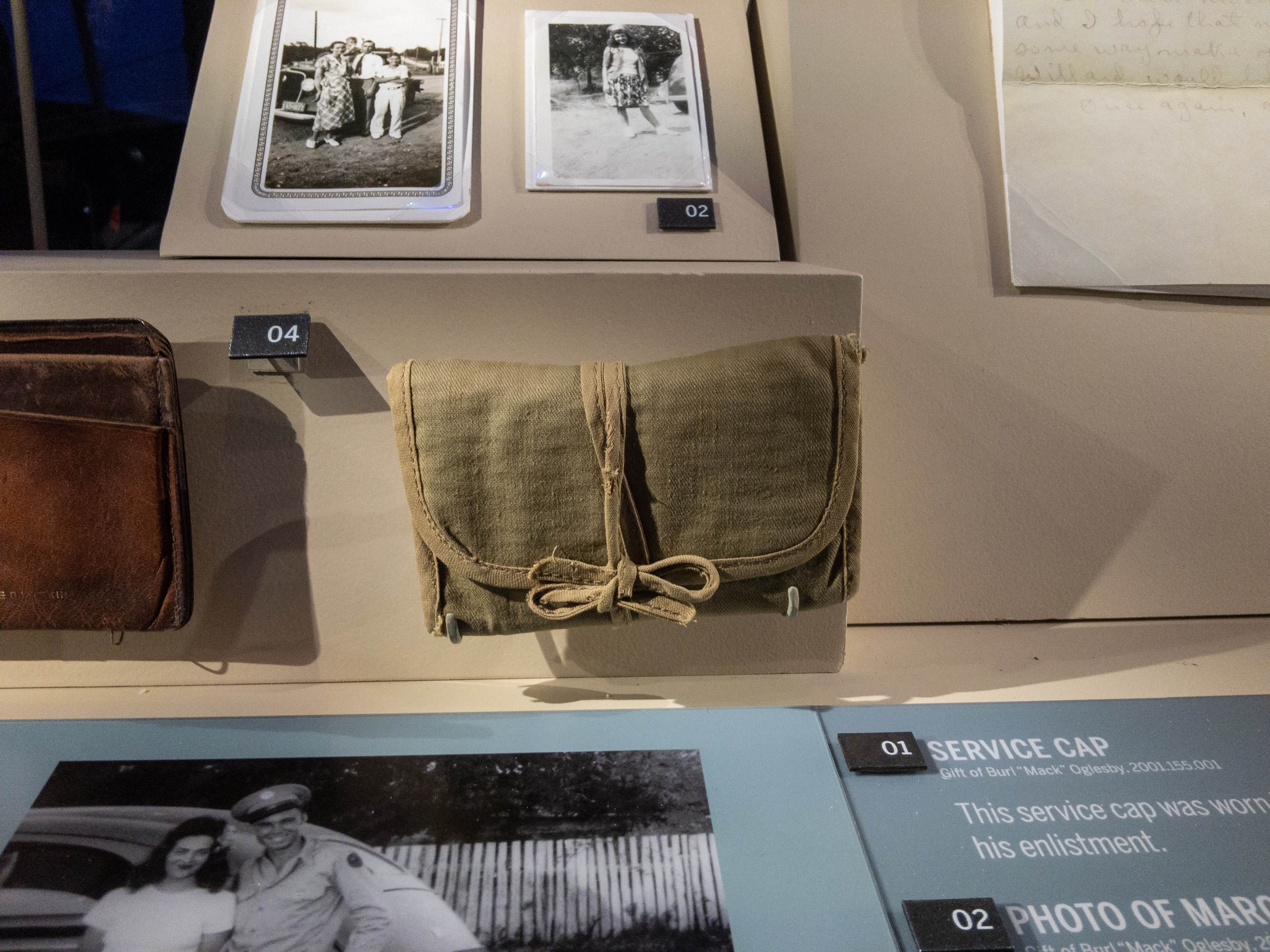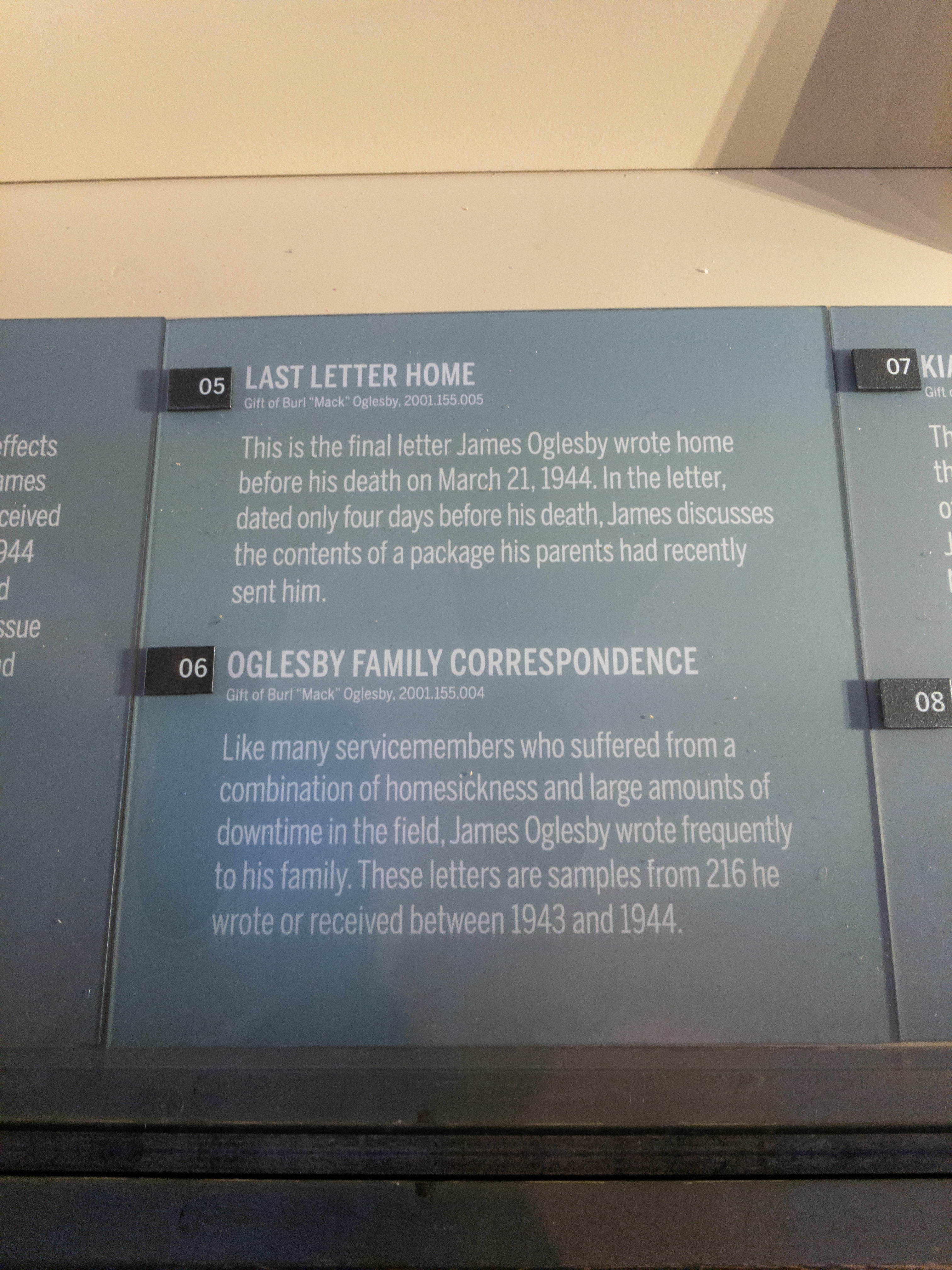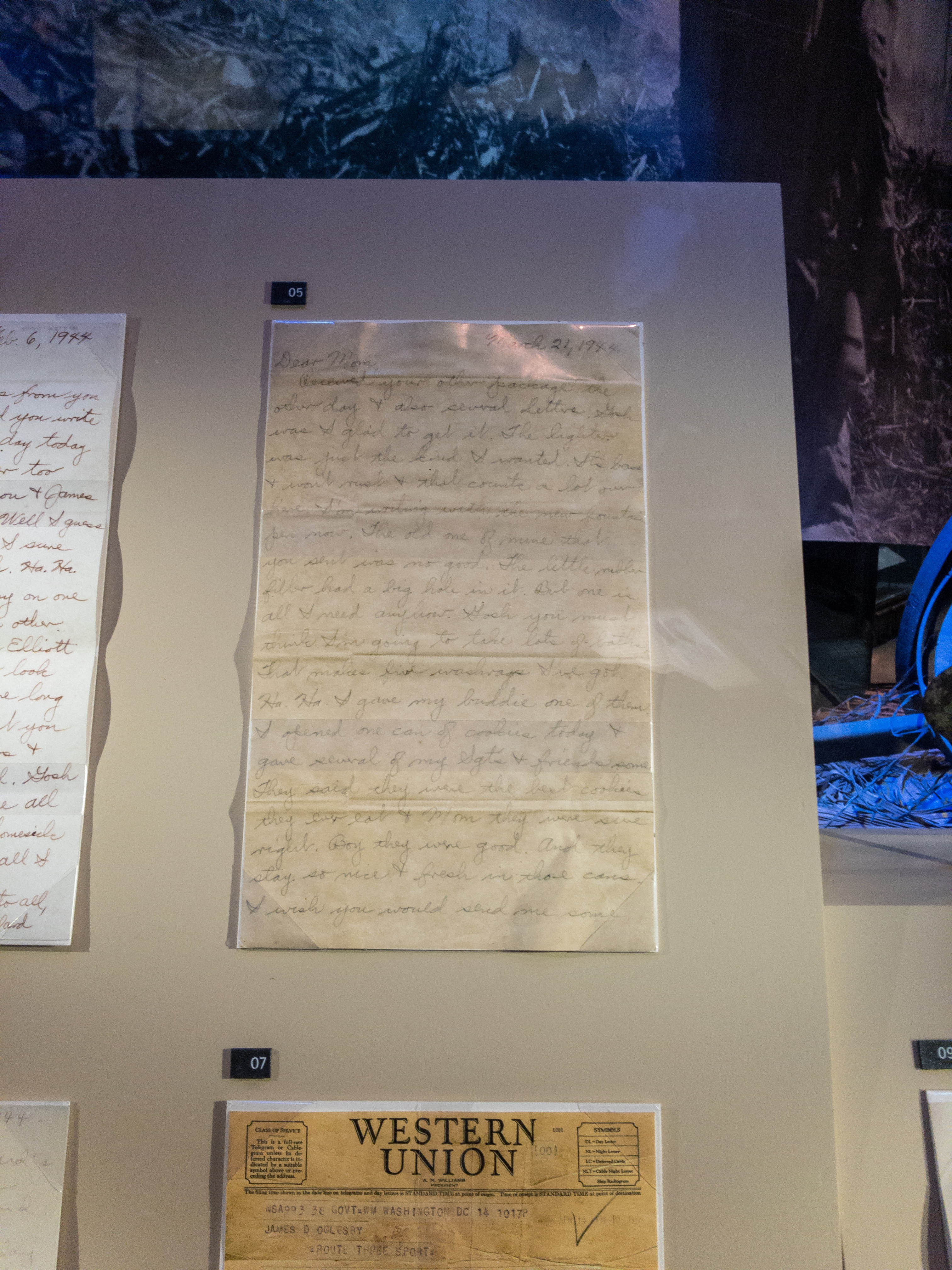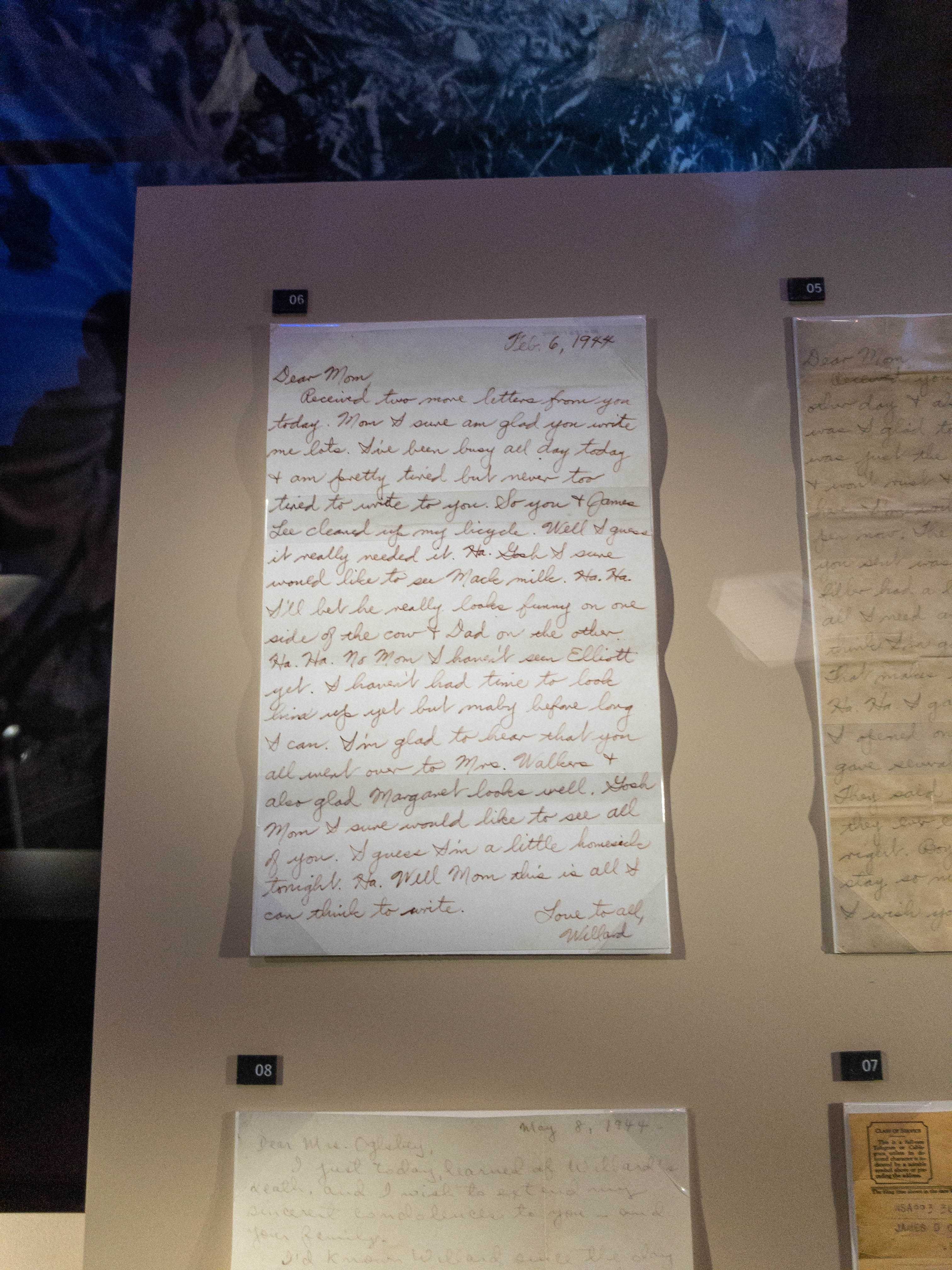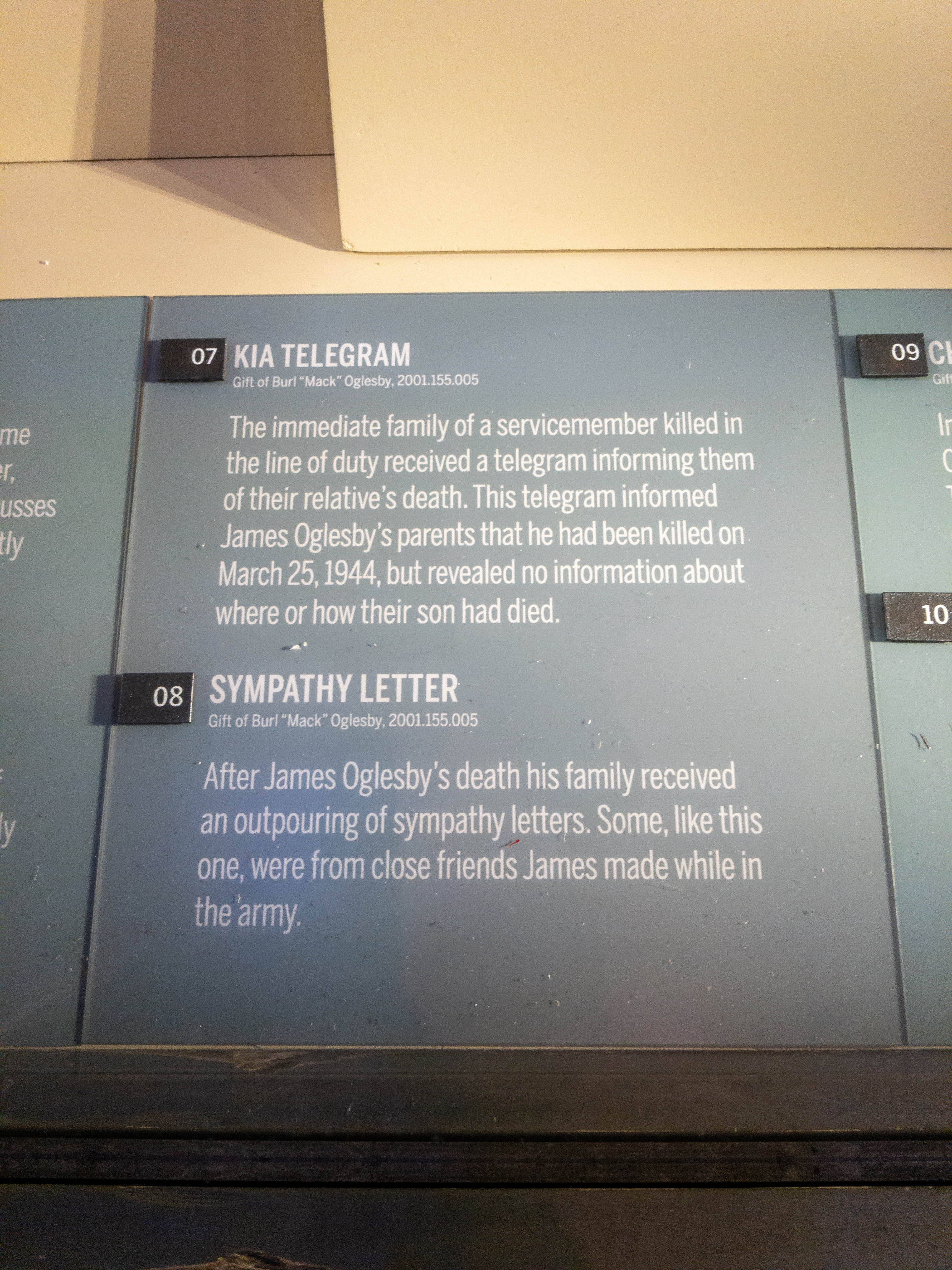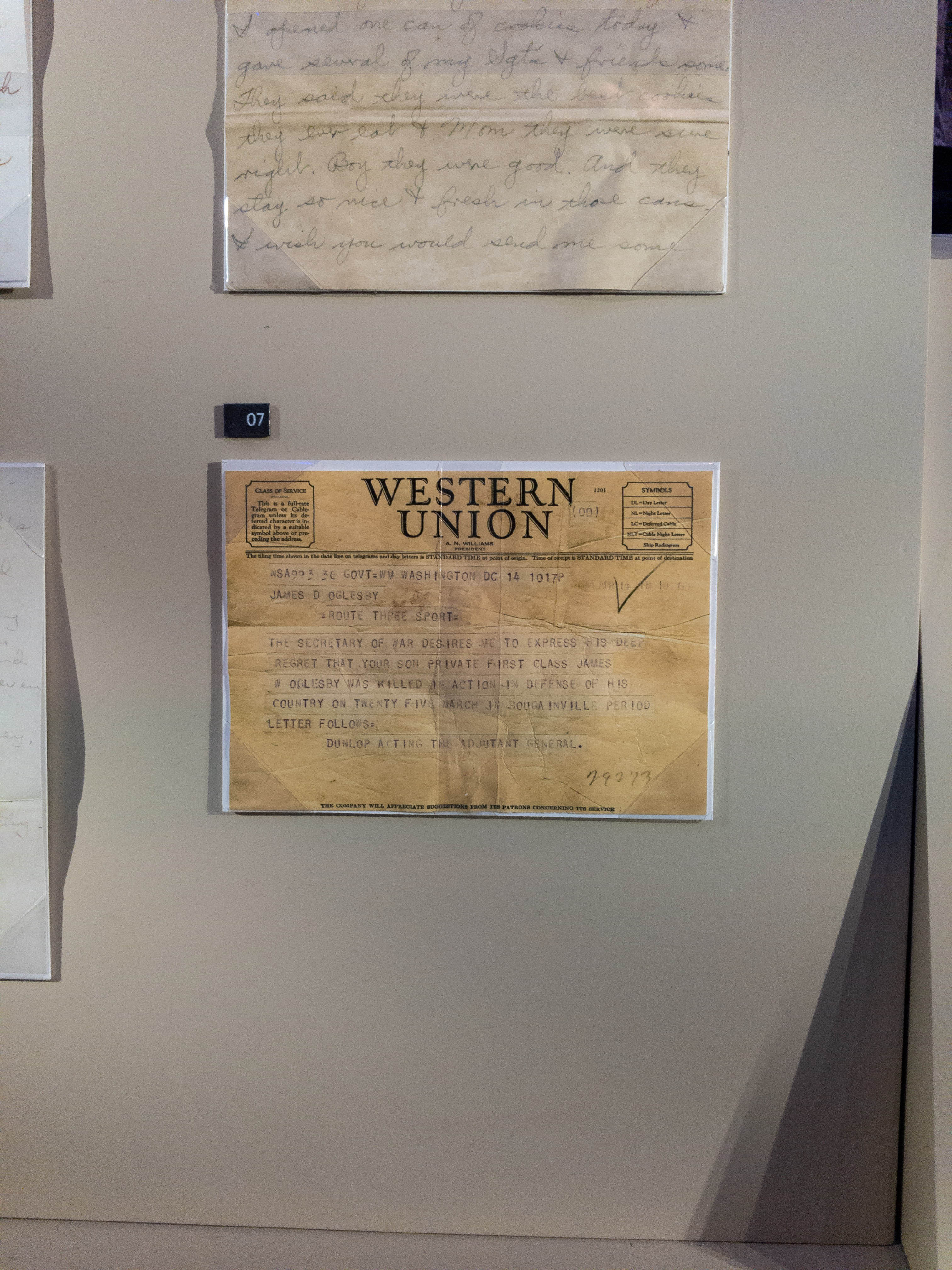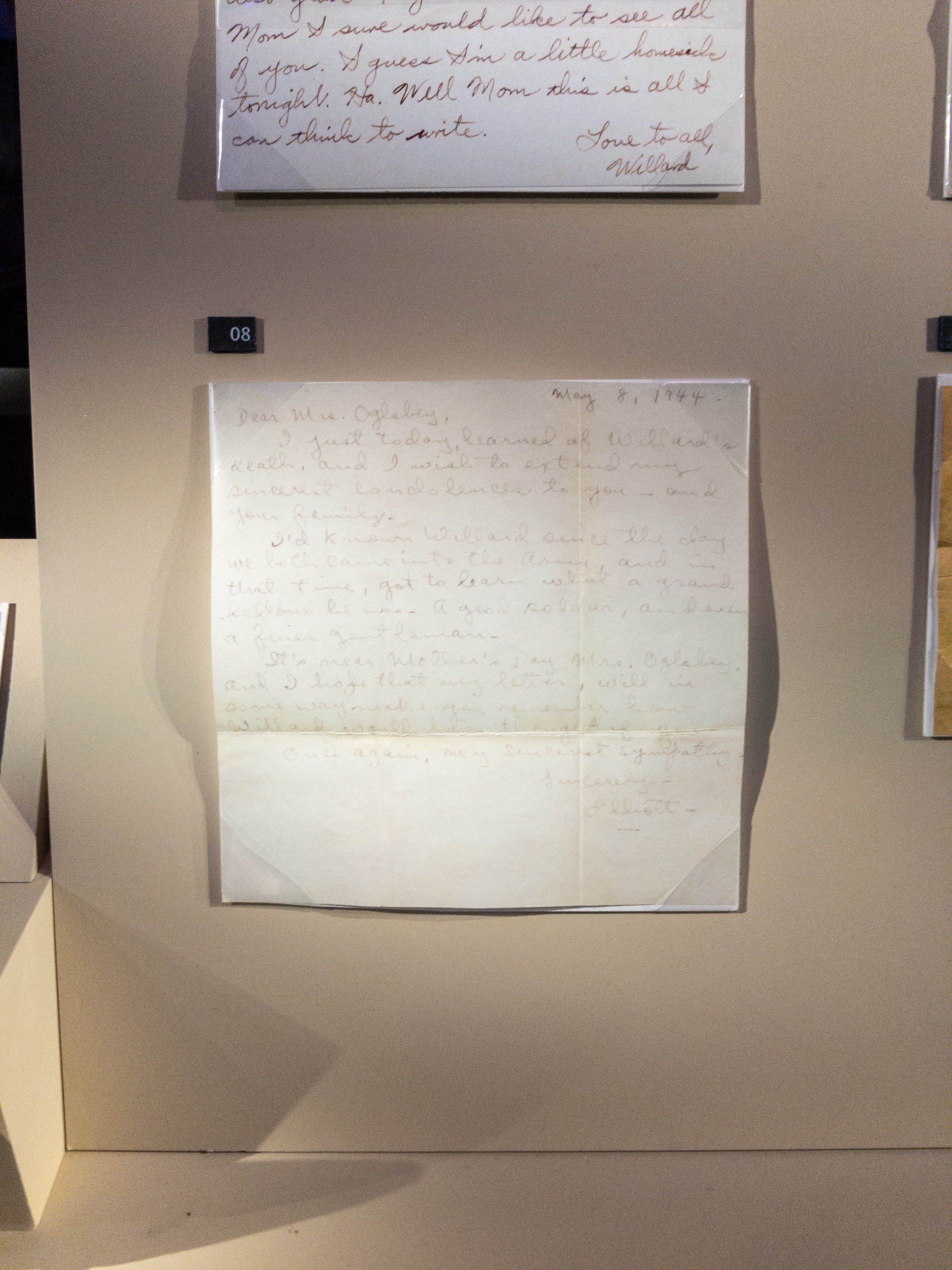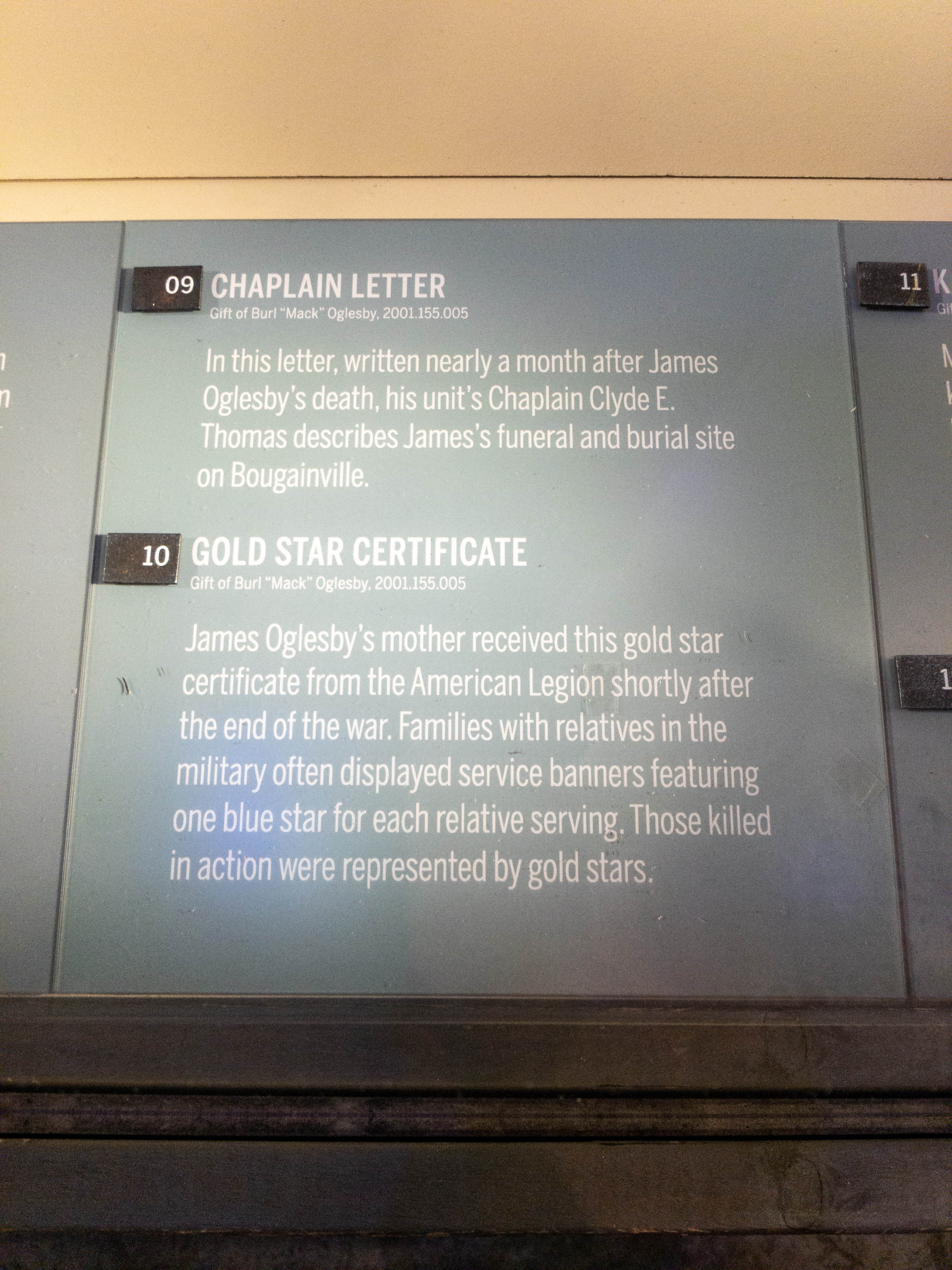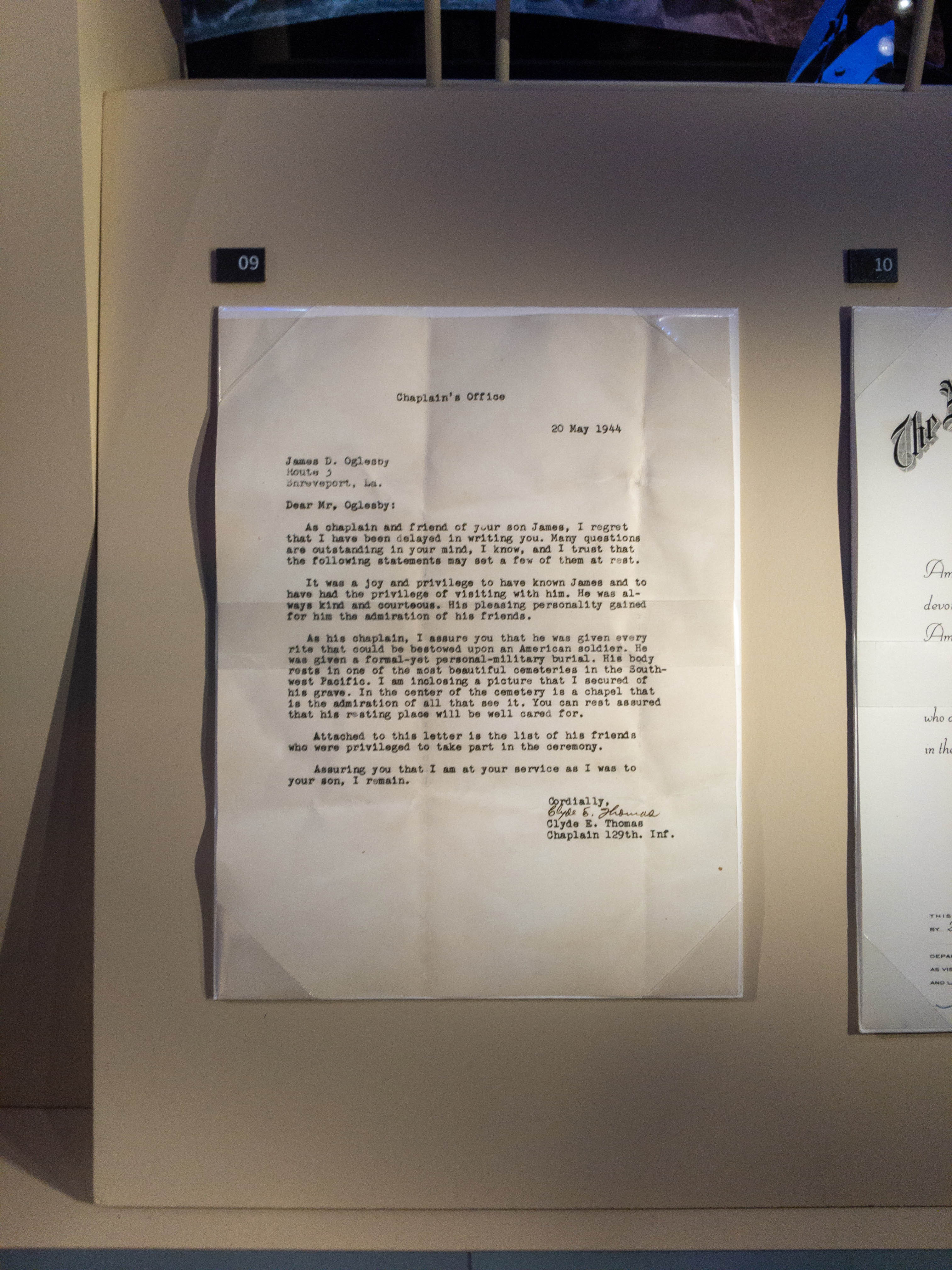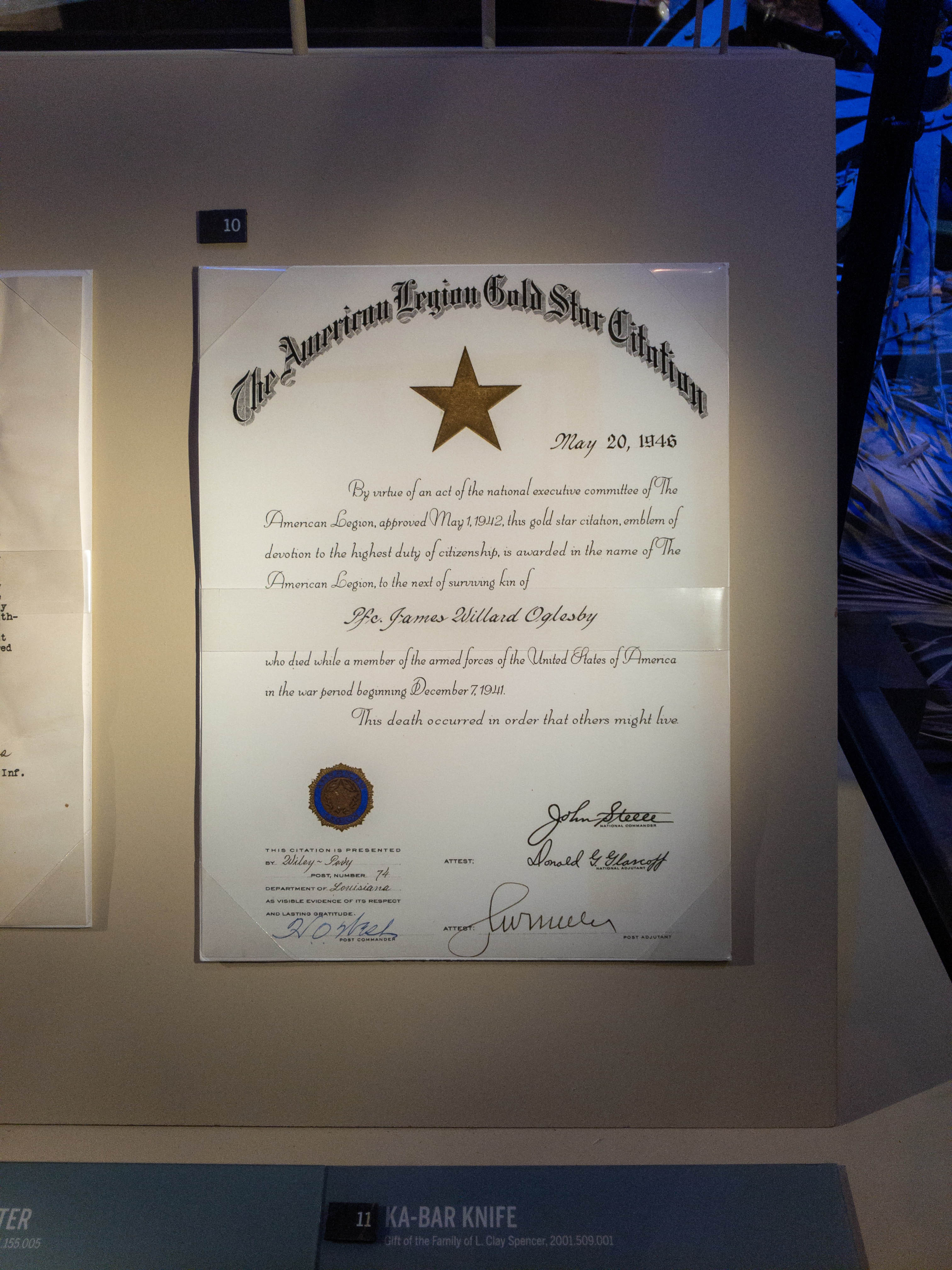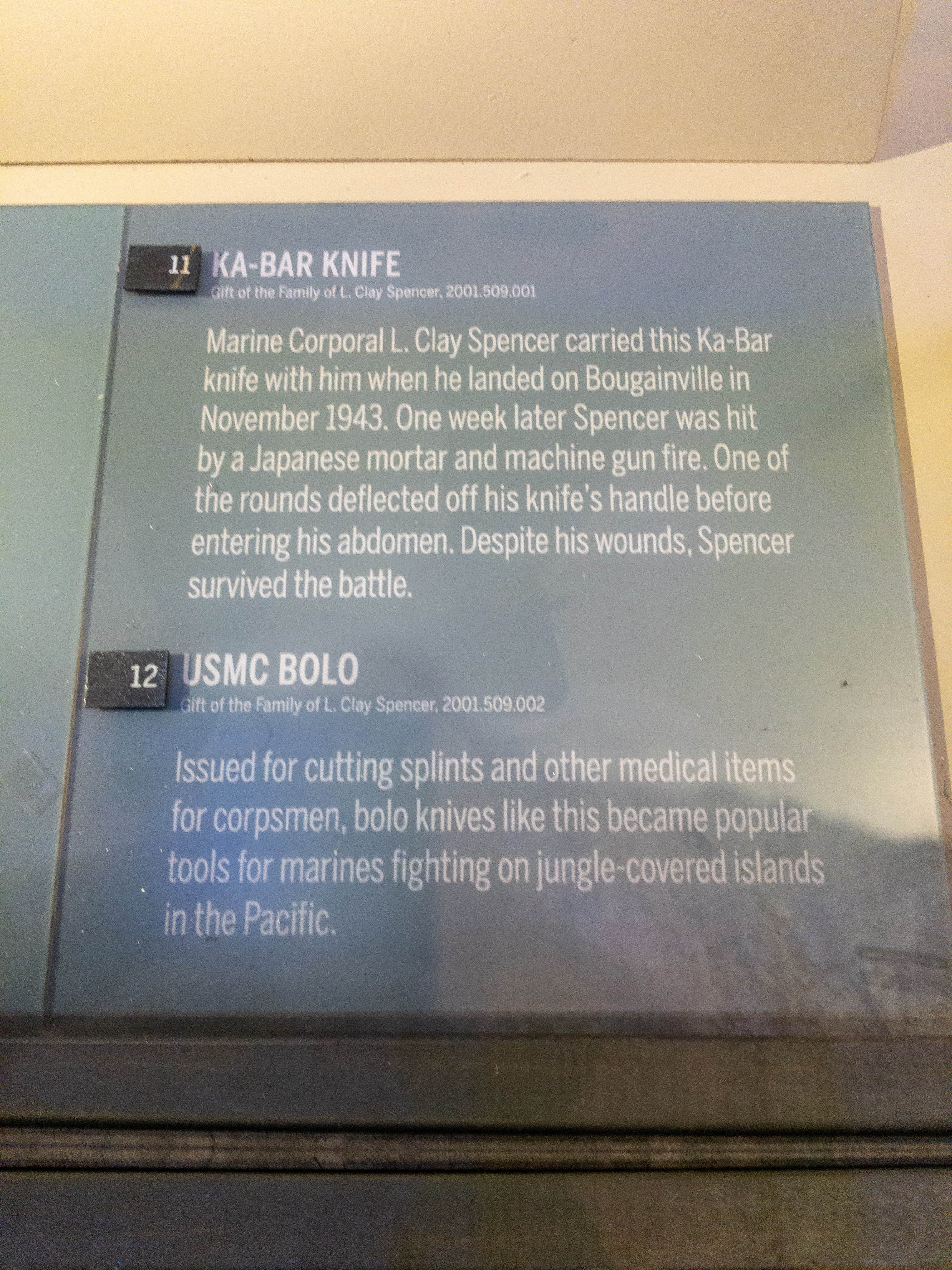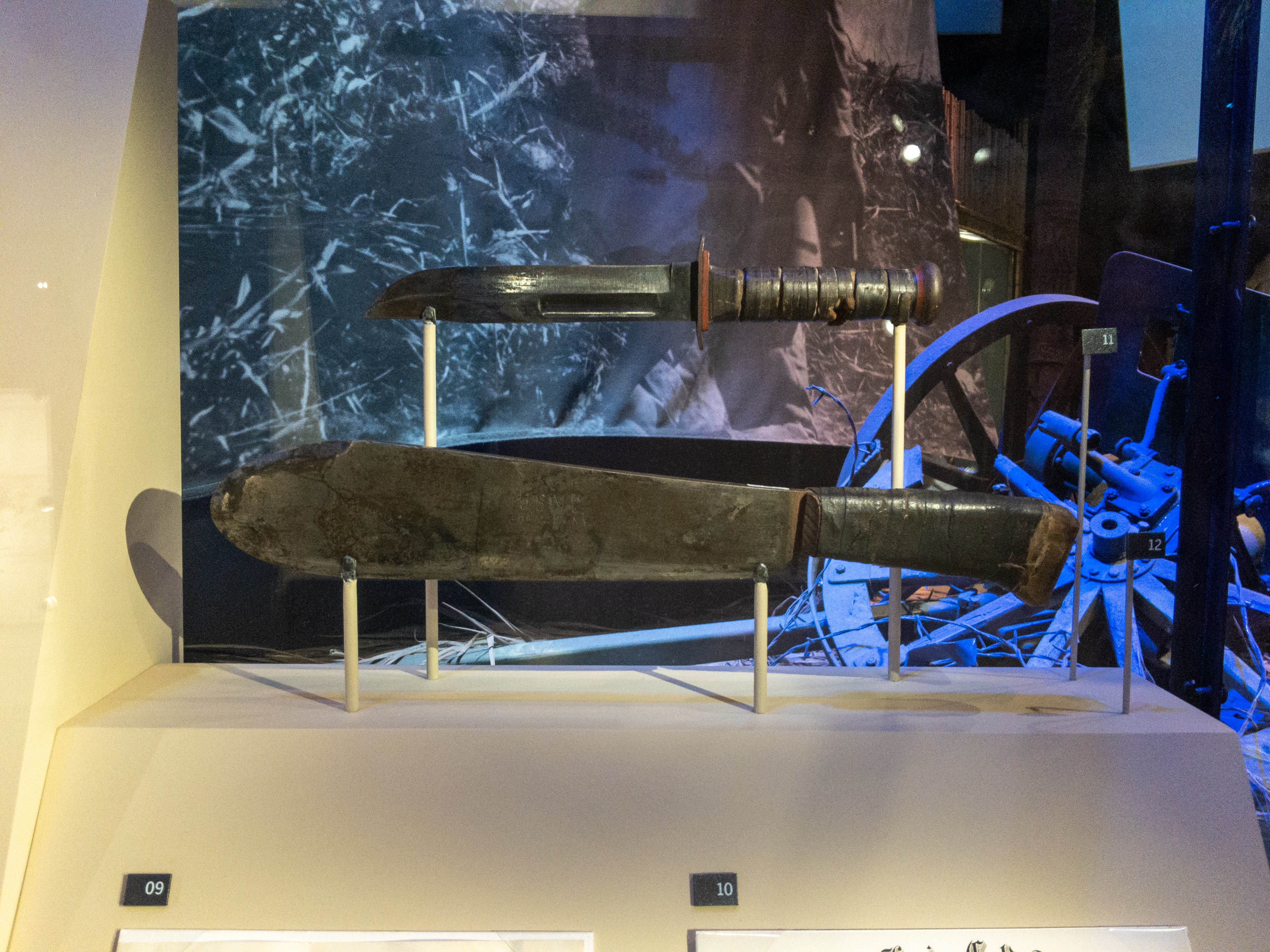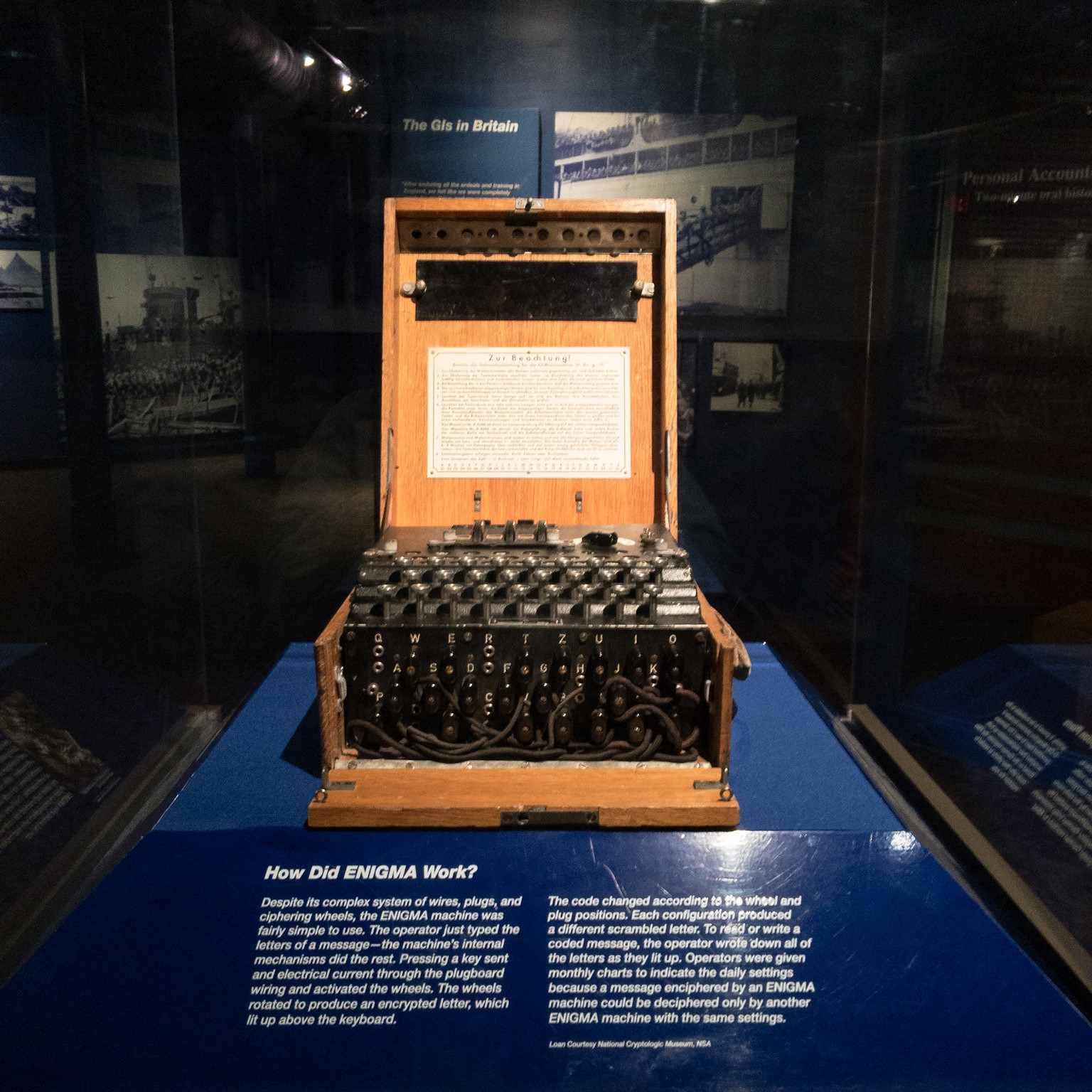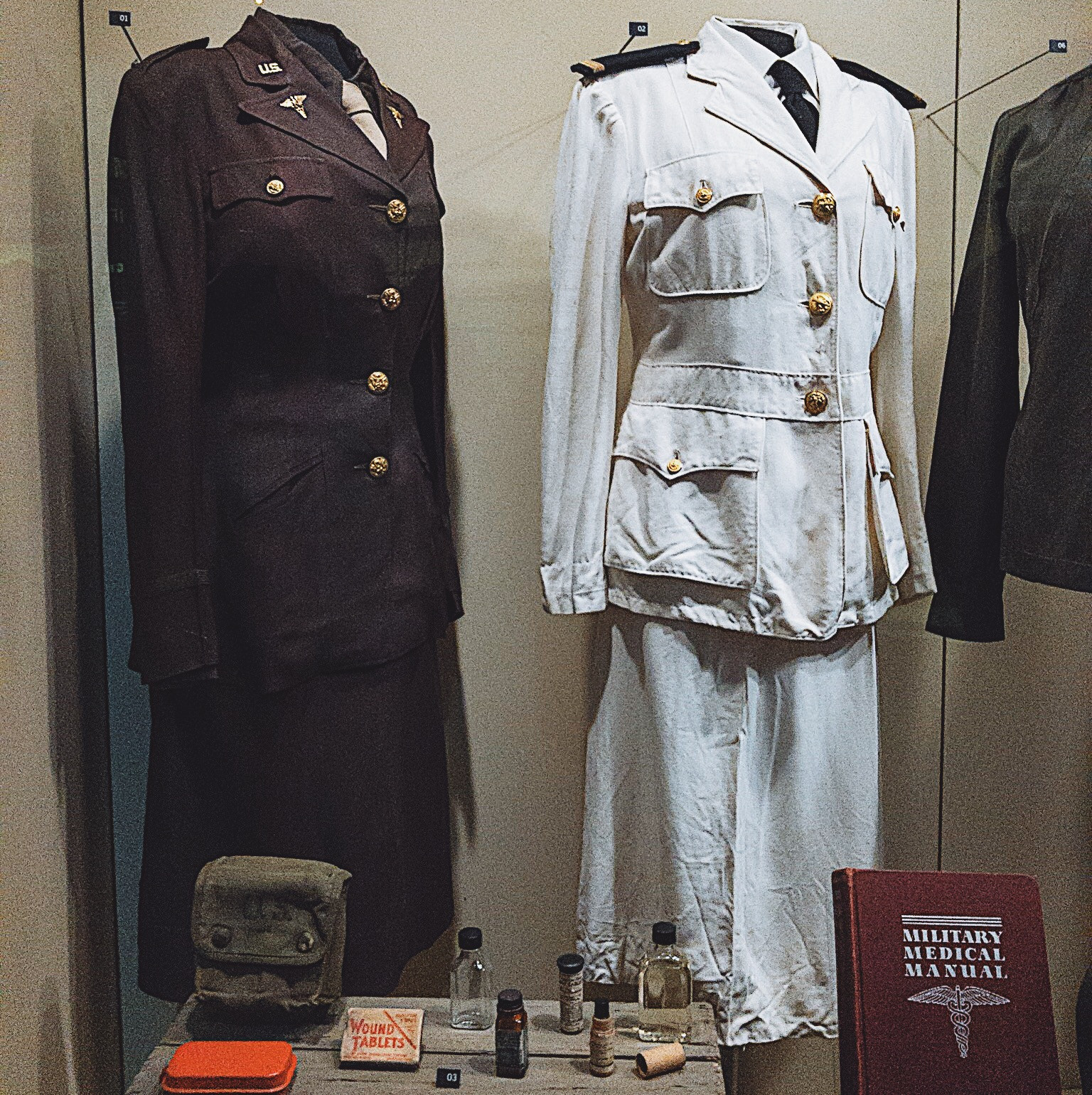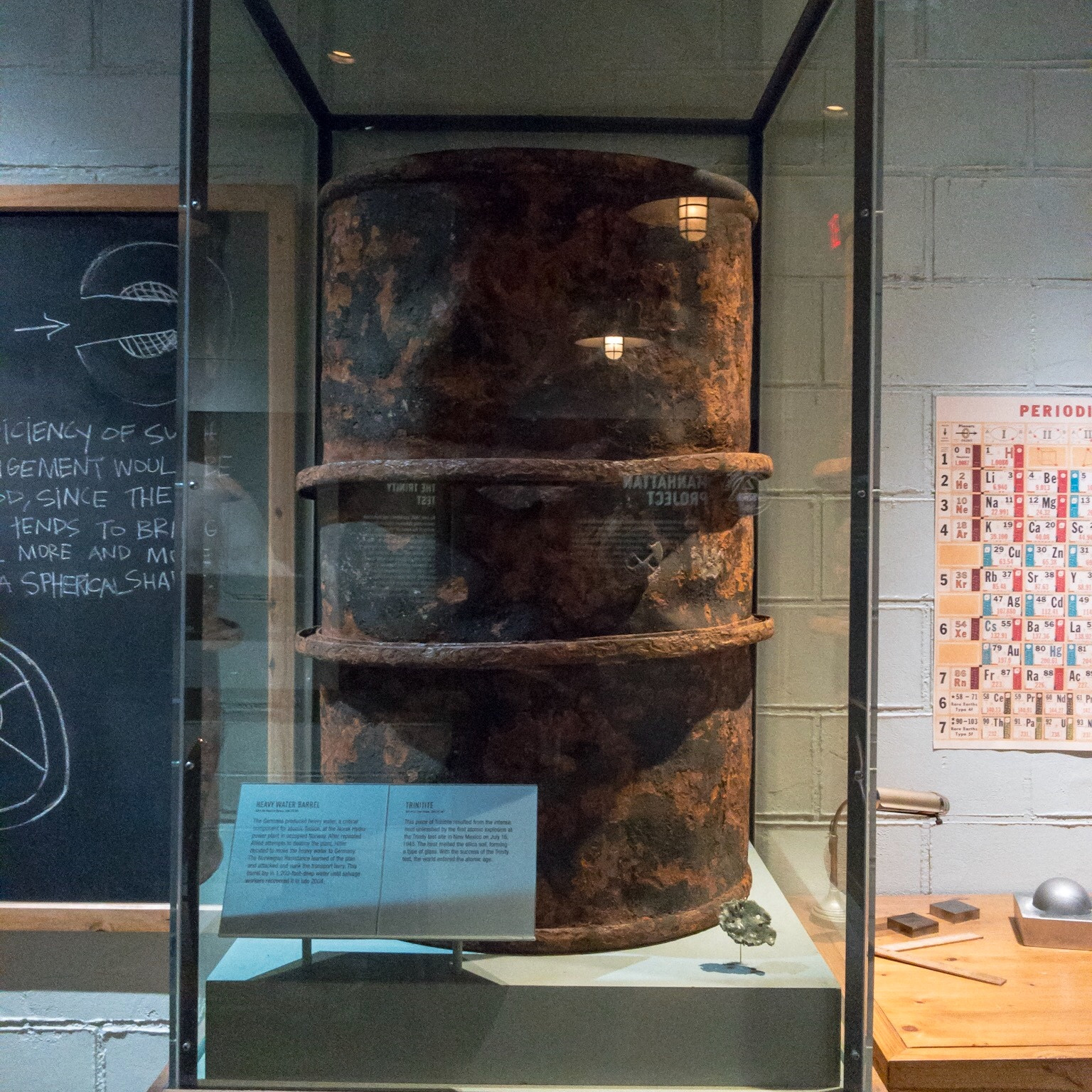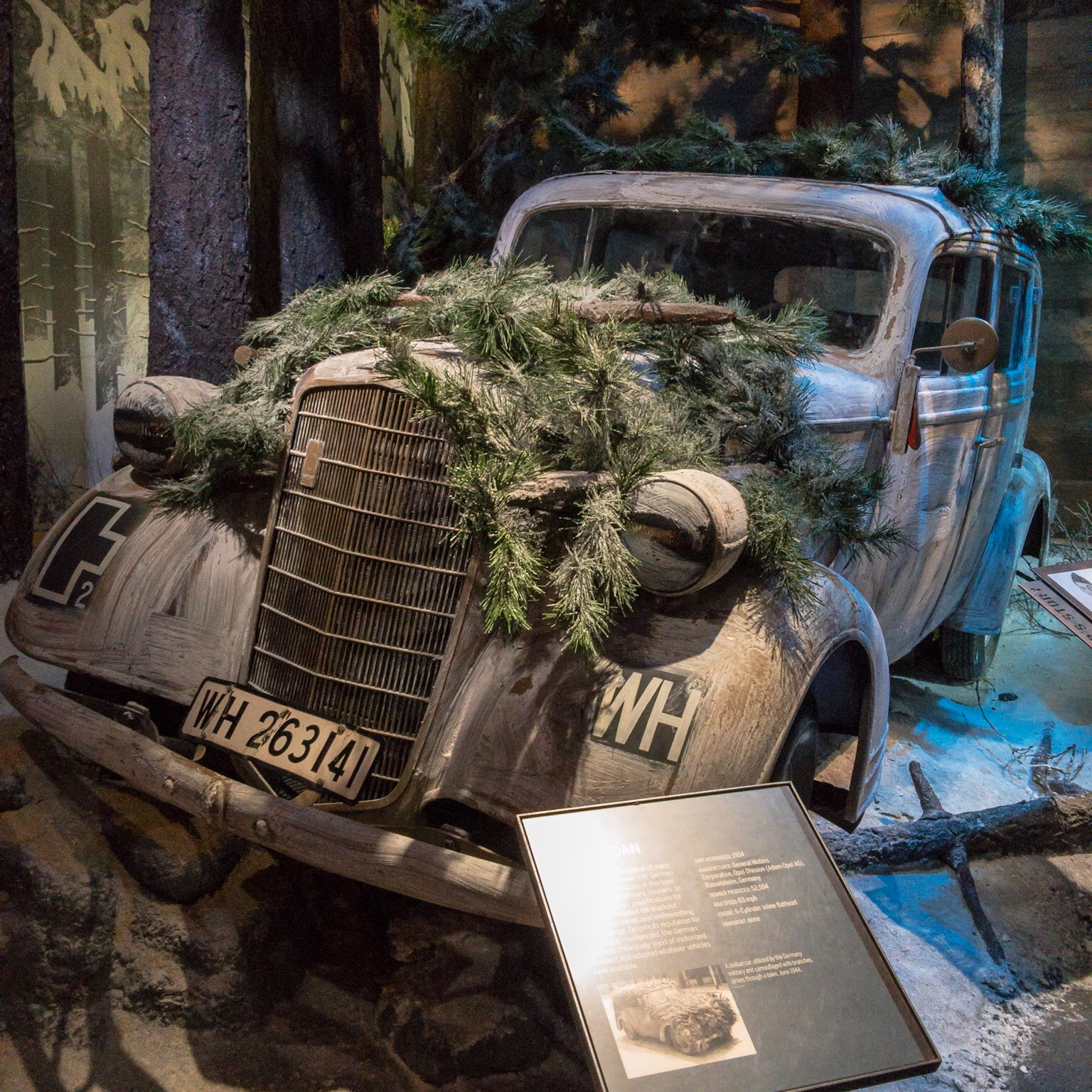Weekly Artifacts | James Willard Oglesby
2019-07-18 22:11:45
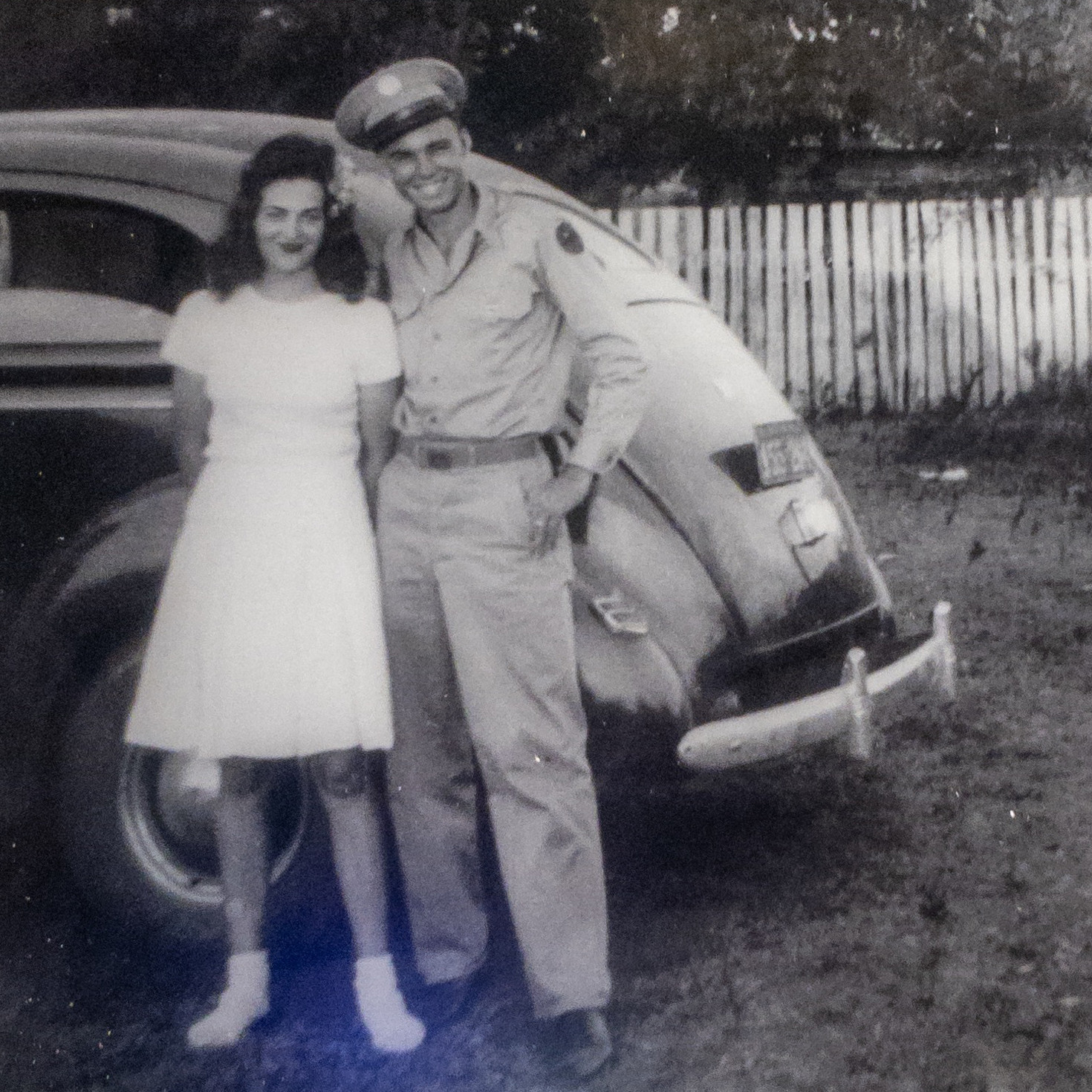
This collection of artifacts shows how somber and almost uncertain losing a soldier is. You would only get the belongings he carried during war. You didn't "get" his body. You received a letter that said your son died, but it didn't give specifics; how can it? Over 400,000 US soldiers were killed during this war. I can't imagine the administrative effort that would have been required to be able to give every family the exact reason and location of death for each soldier. That certainly must have been hard for the families to know their family member died without specifics. You just needed to accept that they're dead, and it's because of this war. In the chaplain letter the funeral is scarcely described. I started thinking while reading it, how similar if not exactly the same these sorts of letters must have been because of the sheer quantity that were sent out. A lot of the time, you weren't allowed to properly grieve for this person. Tangible things like a gravestone or casket weren't available to the soldier's family. You had to grieve off the abstract thought that this person you loved is just no longer with you. Getting the chance to think about this collection reminded me how this world does not need another war like this. We need to remember how the world got to that point back then and never repeat it. It's too much and too costly.
This collection of artifacts means a lot to me. My future boss showed it to me on my interview day at The National WWII Museum. He took me around the Museum after my interview was over, and this was the first stop we made in Rode to Tokyo. He told me this woman kept her marriage a secret so that his family could get his life insurance. I thought to myself how selfless and hard that must have been for her. That's a huge reason this artifact sticks out to me out of all of the artifacts in the entire Museum. I'm never going to forget it. I really appreciated that after my interview I was shown around. That made me want this job even more. I wanted to be a part of spreading the mission of this institution. Now I get to do that everyday.
